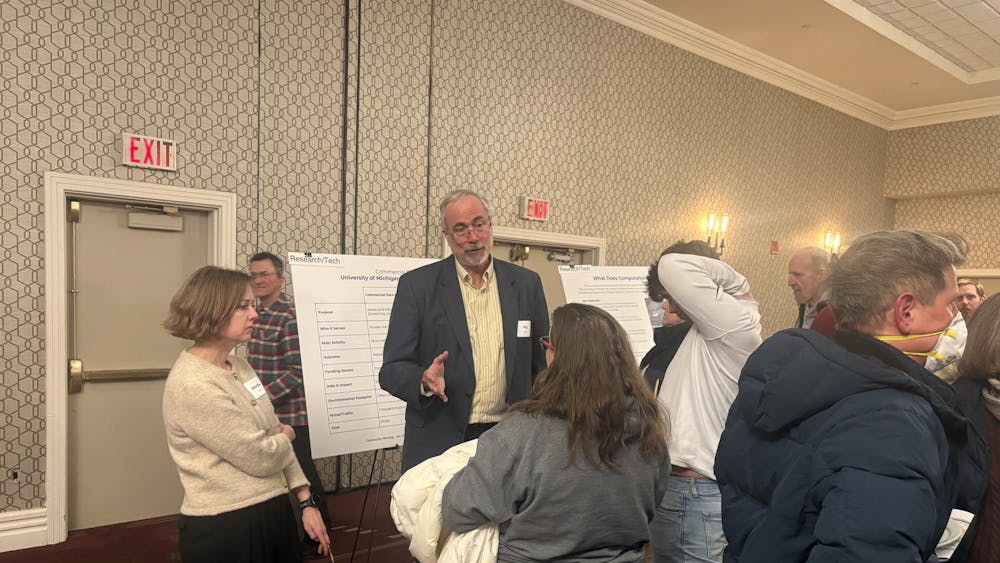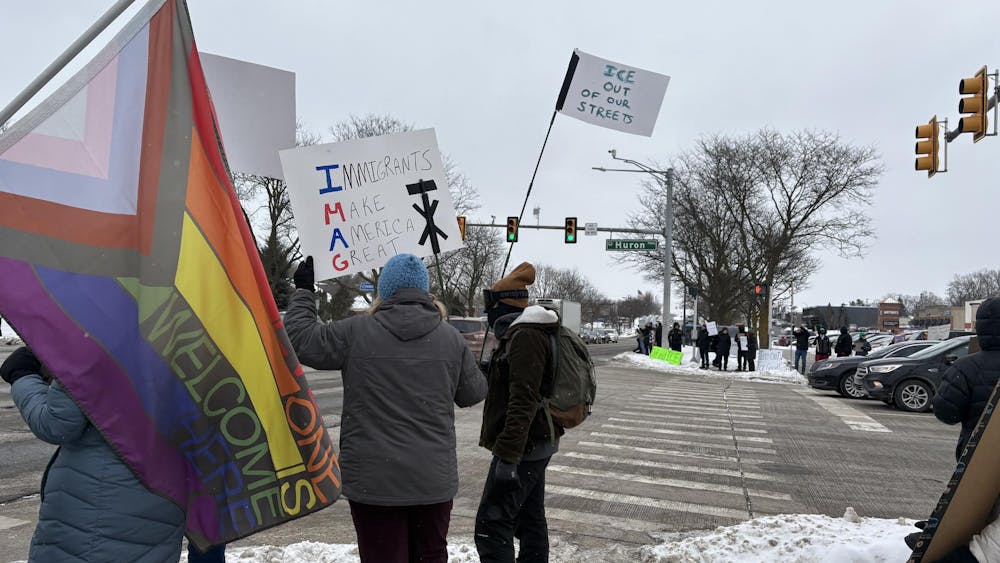Tuesday’s presentation, “Psychological Effects of the Arab Awakening,” at the Student Center, gave an in-depth look into the background and trends behind the unprecedented movement occurring in the Middle East region.
Democracy is gaining ground in the Middle East, but the story behind its rise is fundamentally global.
The event featured EMU professor and widely published scholar Mansoor Moaddel, who made a presentation titled “Trends and Values in the Arab Spring.”
Moaddel highlighted points ranging from the use of technology such as satellite TV and Internet social media, to the mindsets behind the movements themselves.
Moaddel indicated enthusiasm for the awakening, saying, “I am personally very excited about the Arab Spring,” adding that the implications for the world, and US interests specifically, are enormous.
Moaddel focused on the fact that the thinking behind the Arab Spring is largely non-ideological, a complete departure from the two former primary schools of thought in the region, one being Arab Nationalism, the other Islamic Fundamentalism, both of which were highly ideological in nature.
Perhaps even more telling is the overall desire for democracy among Middle Eastern populations.
“A great majority of the publics in Egypt, Iraq, Lebanon, and Saudi Arabia have expressed support for democracy as the best form of government,” Moaddel said.
The presentation indicated that the key elements of the events in the Middle East draw heavily on ideas and tools stemming from democracy and elements of Western society. Moaddel made clear the western influences on the movements, and conversely the diplomatic and national security repercussions for Western Nations.
“This shift is in fact one of the most important developments in Arab countries in the past decades, having enormous positive implications for U.S. national security,” Moaddel said.
He explained that while people in the Middle East may still disapprove of the West’s foreign policies, they are far less likely to demonstrate that through violence.
“Political activists and politicians may still display serious disagreements with the U.S. policies in the region,” Moaddel said. “Nonetheless, the likelihood that these disagreements will be translated into violence against the U.S. or its allies is much less.”
Libya and Syria, prominent examples of Arab Spring movements, were not included in Moaddel’s research due to logistical challenges, but he indicated they appear to be following the overarching trends.
Tuesday’s was the first in a series of events being organized by a multitude of organizations and faculty members, including the Muslim Student Organization, Model U.N., among others, according to Moderator Stephen Burwood, Director of International Programs.
A second lecture, “The Economic Impact of the Arab Awakening,” by Raed Charafeddine, will be held from 6 p.m. to 8 p.m. on March 14 in Pray-Harrold. The room has yet to be determined.
A lobby table with information about the Arab Awakening will be present from 3 p.m. to 5 p.m. on the first floor of the Student Center.










